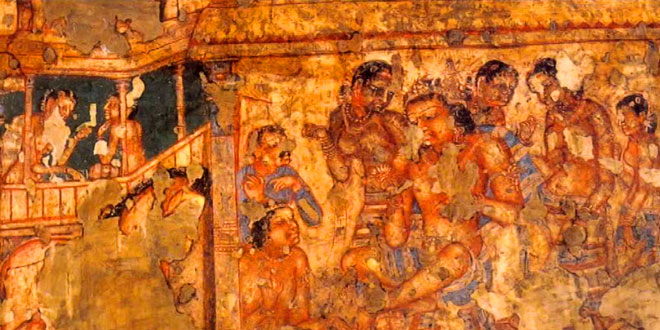Question: Where were some of the largest collections of iron tools found?
Answer: These were found in the megalithic burials.
Question: What was the use of iron tools?
Answer: Iron tools were used for clearing forests.
Question: What did irrigation works include?
Answer: Irrigation works included canals, wells, tanks and artificial lakes.
Question: Mention any one function that was performed by the grama bhojaka.
Answer: The grama bhojaka collected taxes from the village for the king.
Question: How did the dasa karmakara earn a living?
Answer: They used to work on the fields owned by others.
Question: What do you know about Jatakas?
Answer: Jatakas were stories composed by ordinary people and preserved by Buddhist monks.
Question: What were ring wells?
Answer: Rows of pots or ceramic rings arranged one on top of the other came to be known as ring wells.
Question: How did people use ring wells?
Answer: People used ring wells as toilets. They also used them as drains and garbage dumps.
Question: How luos wealth measured during early times?
Answer: Wealth was measured in terms of coins during early times.
Question: What do you know about punch marked coins?
Answer: Earliest coins were punch marked coins, they came to be known like this because the designs were punched on to the metal like silver or copper.
Question: How can you say that Mathura was a religious place?
Answer: One could find Buddhist monasteries and Jaina shrines in Mathura. Mathura was also a place where Lord Krishna was worshipped by the people.
Question: Mention the occupations of people who lived in Mathura.
Answer: Goldsmiths, blacksmiths, weavers, basket makers, garland makers and perfumers.
 Class Notes NCERT Solutions for CBSE Students
Class Notes NCERT Solutions for CBSE Students


